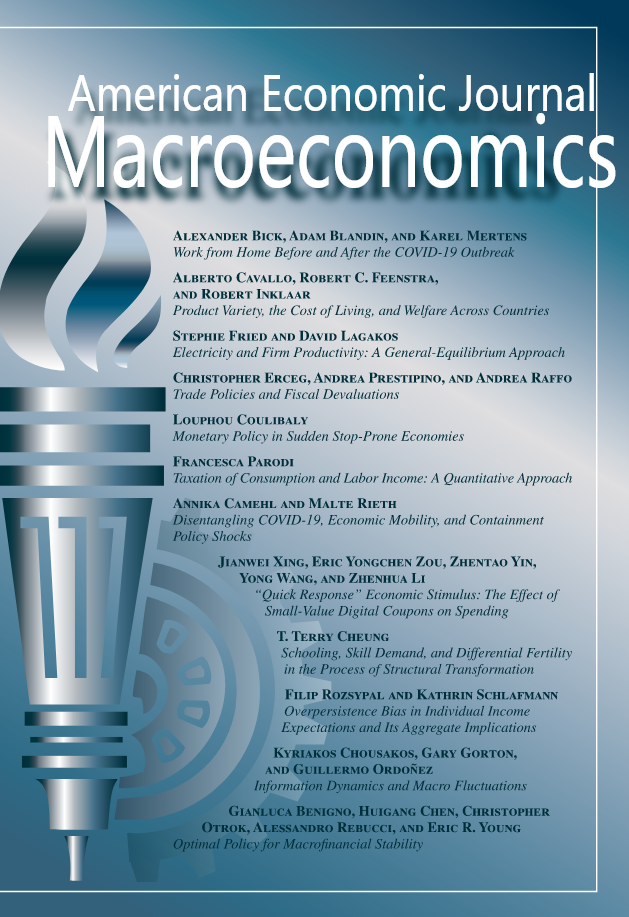不确定性与商业周期:外生冲动还是内生反应?
IF 5.7
1区 经济学
Q1 ECONOMICS
引用次数: 0
摘要
在经济衰退中,未来的不确定性上升。但是,不确定性是商业周期的来源,还是对商业周期的内生反应?不确定性的类型重要吗?我们提出了一种新的SVAR识别策略,通过对结构冲击的不平等约束来解决这些问题。我们发现,经济衰退中宏观经济不确定性的急剧上升往往是对产出冲击的内生反应,而金融市场的不确定性可能是产出波动的一个来源。(凝胶d81, e23, e32, e44, g14)本文章由计算机程序翻译,如有差异,请以英文原文为准。
Uncertainty and Business Cycles: Exogenous Impulse or Endogenous Response?
Uncertainty about the future rises in recessions. But is uncertainty a source of business cycles or an endogenous response to them, and does the type of uncertainty matter? We propose a novel SVAR identification strategy to address these questions via inequality constraints on the structural shocks. We find that sharply higher macroeconomic uncertainty in recessions is often an endogenous response to output shocks, while uncertainty about financial markets is a likely source of output fluctuations. (JEL D81, E23, E32, E44, G14)
求助全文
通过发布文献求助,成功后即可免费获取论文全文。
去求助
来源期刊

American Economic Journal-Macroeconomics
ECONOMICS-
CiteScore
8.20
自引率
1.70%
发文量
58
期刊介绍:
American Economic Journal: Macroeconomics focuses on studies of aggregate fluctuations and growth, and the role of policy in that context. Such studies often borrow from and interact with research in other fields, such as monetary theory, industrial organization, finance, labor economics, political economy, public finance, international economics, and development economics. To the extent that they make a contribution to macroeconomics, papers in these fields are also welcome.
 求助内容:
求助内容: 应助结果提醒方式:
应助结果提醒方式:


